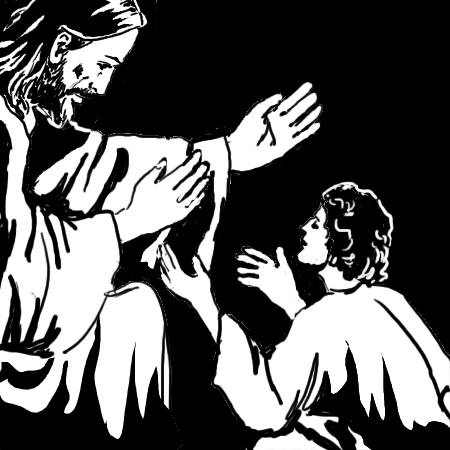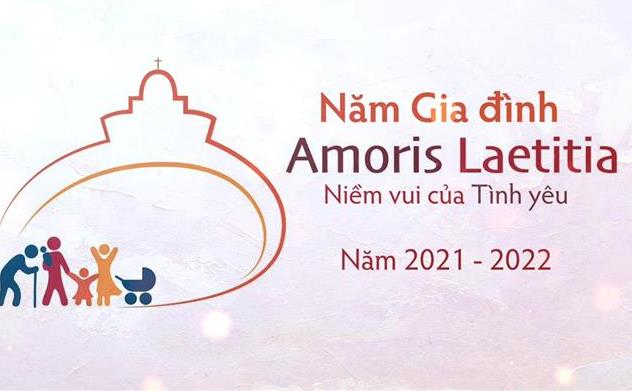31 Sunday of the Year A
Mal 1:14-2:2, 8-10; 1 Thes 2:7b-9, 13; Mt 23:1-12
In order to have an overview and a related understanding of the Gospel, we need to know something about those following groups. Besides the chief priests, there were also the scribes, the Pharisees, the Sadducees, the Zealots, the Herodians and the elders. When they met Jesus, they tended to confront him and find faults with him more or less.
 First, the chief priests belonged to the line of Levi, taking care of worship in the temple and synagogues. Zacharias, the father of Saint John the Baptist was a priest. It fell on him by lot to offer incense in the sanctuary of God (Lk 1:5-6). After having healed the lepers, Jesus told them to go and present themselves to the priest as a proof of healing (Mt 8:1-4; Mk 1:44; Lk 5:14; 17:14). Yet one priest was indirectly criticized when he saw a wounded man beaten by robbers and continued on (Lk 10:31). Secondly, the scribes were scholars and intellectuals in Judaism. They did not belong to any political or religious group. However, many of them were Pharisees and they showed attitude and actions opposing Jesus like the Pharisees.
First, the chief priests belonged to the line of Levi, taking care of worship in the temple and synagogues. Zacharias, the father of Saint John the Baptist was a priest. It fell on him by lot to offer incense in the sanctuary of God (Lk 1:5-6). After having healed the lepers, Jesus told them to go and present themselves to the priest as a proof of healing (Mt 8:1-4; Mk 1:44; Lk 5:14; 17:14). Yet one priest was indirectly criticized when he saw a wounded man beaten by robbers and continued on (Lk 10:31). Secondly, the scribes were scholars and intellectuals in Judaism. They did not belong to any political or religious group. However, many of them were Pharisees and they showed attitude and actions opposing Jesus like the Pharisees.
Thirdly, as for the Pharisees, they were a religious sect within Judaism, mentioned frequently in the gospels. According to Josephus, there were about 6,000 Pharisees in Herod’s time. The Pharisees tended to criticize Jesus and oppose him and his disciples. Saint Paul was a former Pharisee. Nicodemus (Jn 3:1-12; 7:45-48) and Gamaliel (Acts 5:34) were also Pharisees. Fourthly, the Sadducees were a group also within Judaism. They neither believed in the resurrection of the dead (Mt 22:23-32; Mk 12:18-27; Lk 20:27-40), nor did they believe the existence of angels and spirits (Acts 23:8). The Sadducees and the Pharisees demanded a sign once from heaven (Mt 16:1-12). Fifthly, the Zealots represented fanatic nationalism. They believed in the restoration and independence of Israel. They opposed the census ordered by Caesar Augustus. Their tactics of attacks against foreigners were similar to guerilla warfare of the Communists before their seizure of power and similar to terrorists’ attacks of the Islamist militants. Yet Jesus chose one of the zealots, named Simon, to be his apostle. Sixthly, then come the Herodians (Mt 22:16; Mk 3:6; 12-13) who were pro-king Herod and thus pro-Roman rulers.
Finally, the council of the elders maintained the rabbinical traditions collected into books. Three groups involved in the persecution and crucifixion of Jesus were the high priests with the Temple guards, the scribes and the elders with the crowd. God demands from his people a sincere response to his words. The Old Testament priests were responsible for leading God’s people in worship on the Sabbath and for bringing God's message to his people.
Yet the God of the Sabbath worship in the OT, the same God of the Sunday worship in the New Testament, was not pleased with them because they were not responsible. They offered to God cheap worship and lip service according to a routine fashion and exterior manner. Therefore, God commanded the prophet Malachi to warn them: You have turned aside from the way and have caused many to falter by your instruction (Ml 2:8). In today’s Gospel, the scribes and the Pharisees came to the scene. Jesus said they held the chair of Moses, meaning they were experts on the Law of Moses and chosen to interpret the law. However, Jesus warns us of their hypocrisy and injustice and of their misguided values.
They appeared to be holy to people. They paid attention to the external observances of the law that made them feel good. Therefore, Jesus told the crowd and his disciples: Do and observe all things whatsoever they tell you, but do not follow their example. For they preach, but do not practice (Mt 23:3). There are a few points in today's Gospel, which seem to be knotty in our mind.
Jesus told us not to address anybody on earth as teacher, father or master. Yet people still address one who teaches them as teacher. Parishioners still address a priest as father to express a spiritual relationship: father so and so. Children still address the one who gave them birth as father. Some people have foster-parents. Christians also have godparents. So, do we try to go against what Jesus taught? The answer is when we address somebody as father; we realize that only God is the all-mighty and ever-present Father. Jesus’s word was not meant that his disciples were not allowed to teach, to heal and to sanctify. Since the beginning of the Church, the faithful considered bishops and then priests as spiritual fathers.
Thus, it implied that the two disciples considered Saint Paul as their spiritual father. Then when we address somebody as teacher or master, we realize that only Jesus is the supreme teacher and the all-wise and all-knowing master. Jesus condemned the scribes and the Pharisees only because they wanted to be addressed as teachers or fathers. The scribes demanded from their students an absolute respect. Their desirable pride to love places of honor at banquets, seats of honor in synagogues, greetings in marketplaces and the salutation ‘rabbi’ (Mt 23:6-7), plus their hypocrisy, fake, pride and boast that made them blameworthy, condemned and punished (Mt 23:13-36). Jesus' warning to the scribes and Pharisees should help us examine ourselves about our worship and our practice of faith. We might discover that some of the actions and attitudes of the Pharisees are also rooted in our spiritual lives.
Our religious acts can be hypocritical, phony, boastful, displaying and self-seeking. In a certain sense, perhaps the Phariseeism and scribeism may be found in our spiritual system. Today we must come to realize that God knows everything. He knows our secret thoughts and desires. We cannot hide anything from him. If we look deep into our lives, we will discover what needs to be dusted, what needs to be repaired, what needs to be thrown away? When we clean our house, we need to dust, to throw away garbage, and then when we clean our spiritual house, we need to dust, and to throw away garbage from our soul.
A prayer for being true to self:
Oh Lord, our God! You know everything.
You know our secret thoughts and desires.
May we know ourselves: good points and bad
as to be true to ourselves.
May my thought go with my word and action?
so that my prayers and offerings may be pleasing
and acceptable to you. Amen.
John Tran Binh Trong



 Every Week God Speaks – We Respond, Cycle A was published Online in the US. The introduction of the book is recorded at “Sách của Tác giả Chủ trương, Column 1.
Every Week God Speaks – We Respond, Cycle A was published Online in the US. The introduction of the book is recorded at “Sách của Tác giả Chủ trương, Column 1.

 Năm Mục Vụ Giới Trẻ 2021. HĐGM ấn định một chương trình Mục vụ Giới trẻ 3 năm với các chủ đề tương ứng: Năm 2020: Đồng hành với người trẻ hướng tới sự trưởng thành toàn diện.
Năm Mục Vụ Giới Trẻ 2021. HĐGM ấn định một chương trình Mục vụ Giới trẻ 3 năm với các chủ đề tương ứng: Năm 2020: Đồng hành với người trẻ hướng tới sự trưởng thành toàn diện. Năm Thánh Giu-se: Nhân kỷ niệm 150 năm Đức Giáo hoàng Pio IX chọn thánh Giuse làm Đấng Bảo Trợ Giáo Hội Công Giáo, Đức Phanxicô đã ban hành Tông thư “Patris corde” – Trái tim của người Cha – và công bố “Năm đặc biệt về thánh Giuse” từ
Năm Thánh Giu-se: Nhân kỷ niệm 150 năm Đức Giáo hoàng Pio IX chọn thánh Giuse làm Đấng Bảo Trợ Giáo Hội Công Giáo, Đức Phanxicô đã ban hành Tông thư “Patris corde” – Trái tim của người Cha – và công bố “Năm đặc biệt về thánh Giuse” từ  Năm “Gia đình Amoris Laetitia” 2021 về “Vẻ đẹp và niềm vui của tình yêu gia đình” do Bộ Giáo Dân, Gia Đình và Sự Sống tổ chức, được Đức Phanxicô khai mạc dịp Lễ Thánh Giuse
Năm “Gia đình Amoris Laetitia” 2021 về “Vẻ đẹp và niềm vui của tình yêu gia đình” do Bộ Giáo Dân, Gia Đình và Sự Sống tổ chức, được Đức Phanxicô khai mạc dịp Lễ Thánh Giuse 
